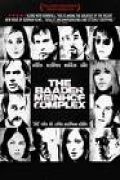
Directed by
Uli Edel
150 minutes
Rated MA
Reviewed by
Bernard Hemingway


The Baader Meinhof Complex
Synopsis: The history of German terrorist group the Red Army Faction, a.k.a. the Baader Meinhof group.I would imagine that most people who will go to see The Baader Meinhof Complex will do so because they are interested in re-visiting these remarkable times. In this respect they are not likely to be disappointed. Germany's radical, left-wing group, the Red Army Faction were, like America’s Weathermen (the subject of Sam Green’s and Bill Siegel’s excellent 2002 documentary The Weather Underground) a cabal of young people so frustrated and angered by the monolithic hegemony of the Western capitalist state that they justified violent action as a means to political change. Germany's official entry for the 2009 foreign language film Oscar is a detailed and, many would say, long winded, account of that group from their initial politicization to their eventual immolation.
I have no more than a cursory knowledge of the events and so, like most, must take on trust the accuracy of what is depicted. This appears to be done with rigour (is it based on a best-selling book by Stefan Aust, until recently the editor of Germany's Der Spiegel magazine, who collaborated with Edel on the screenplay). We see how a generation of young West Germans rebelled against their parents' generation, a generation which not only had been complicit with Nazism but which continued to support right-wing regimes like that of Iran under the Shah of Persia. The film shows how this rebellion was fuelled by a mix of personal and political motivations, focussing in particular on the inner circle of Ulrike Meinhof (Martina Gedeck), a politically-articulate journalist from a well-to-do background with a two-timing husband, and Andreas Baader (Moritz Bleibtreu), a near sociopathic hot-head and his equally angry girlfriend Gudrun Ensslin (Johanna Wokalek), leaders of a group of people united against what they saw, with justice, as a morally bankrupt system.
The film intersperses its narrative with familiar archival footage of the key events of the period – Vietnam, Paris ’68, Kent State and so on, played over in one strong sequence to Deep Purple’s classic track “Child Of Time” - as it tracks the history of the group from the late 60s as ideologically-informed radical activists to the late 70s by which time it had perpetrated a series of sporadic murders of members of the German establishment and lost all public sympathy.
The film is remarkably well-made with a flawless recreation of the period especially impressive because it required so many large exterior and interior settings (it is reputed to be the most expensive German movie ever), a tense exposition that, somewhat questionably, matches that of any Hollywood action thriller and strong performances from an ensemble of leading contemporary German actors, most recognizably Gedeck whom many will remember as the lead of 2001’s Mostly Martha and Bruno Ganz, now an eminence gris of German cinema (he starred in 2004’s Downfall, which like this film was produced by Bernd Eichinger) as the oddly sympathetic but inexorably diligent anti-terrorist chief.
Despite its production chops, most people will find the length of the film wearing. Its main thrust, which deals with the initiating group, is an already detailed affair, following which is difficult enough for those reading sub-titles. When this group has been incarcerated and a “second generation” takes over we, probably like the German public of the time, tend to experience terrorist-fatigue. Whilst this thoroughness is commendable from the viewpoint of historical accuracy, and the group's relationship with Arab terrorist cells of interest, from a cinematic viewpoint it is simply too much information that even the film-makers themselves do not know how to present effectively (there is a television version with a run-time of 180 minutes which presumably does this better). In the latter stages there is a raft of new characters introduced and new bombings and assassinations take place but the focus on the main characters is lost. Much of this information could have simply been dealt with by end-titles summarizing the history of the group whilst dramatically the film would have benefited immeasurably from concentrating on the main three characters (there is a fourth but he is never of comparable importance) . In Gedeck’s Meinhof we certainly get a clear sense of the psychological toll which drove her, like her fellow activists to commit suicide but the other members remain largely ciphers and Ganz’s character simply disappears from proceedings.
However one judges the actions of the RAF, their story is a tragic one and in many ways had the film concentrated on this aspect and less on the A to Z of its history it would have done them more justice. But if you want to reprise those years and reflect on what has happened in Western society since then, The Baader Meinhof Complex.is well-worth seeing.
Want something different?





